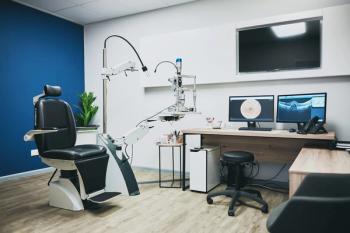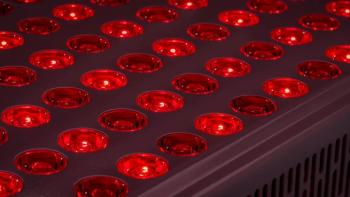
Prescribing contact lenses for athletes
Athletes have many vision challenges, but contact lenses can meet many of their needs on the court, field, or pitch, says Niall Farnon, MCOptom, when he presented at SECO 2016.
Atlanta-Athletes have many vision challenges, but contact lenses can meet many of their needs on the court, field, or pitch, says Niall Farnon, MCOptom, when he presented at SECO 2016.
Athletes are not just limited to those of the collegiate or professional variety. This demographic can include everything from the teenage baseball player to the retired golf enthusiast. Discovering these athletes among your patients may open up a whole new avenue for your contact lens practice.
“This is a different market than your regular patients,” says Dr. Farnon of athletes’ vision needs. “But hopefully, you’ll see that it’s not too different-it’s just a matter of listening to the patient, his requirements, and what he needs, because nowadays, we certainly have the tools.”
The advantages of contact lenses in sports
Dr. Farnon says there are a number of advantages to wearing contact lenses vs. glasses for athletes:
• Increased peripheral field (“Particularly in ball sports, it is vital that you be able to see who is around you-is it a competitor coming up toward me or is it a teammate?” says Dr. Farnon.)
• No visual distortions (“With high-powered lenses, you may not get the image that the patient wants with glasses. Think of archery, shooting-he needs to see that target perfectly,” he says.)
• Not affected by dirt or rain (“You can’t stop the game so you can wipe your spectacles,” he says.)
• Fewer aberrations/fewer reflections (“A lot of sports are played under stadium lights, which can be quite harsh on the eyes, but if you take away that spectacle lens, you won’t have that problem,” says Dr. Farnon.)
• Can offer UV protection
• Reduces the risk of facial trauma due to lens fragments/frame edges
• Allow for a full range of eyewear protection to be used
• Disposability
Related:
These advantages are something you need to keep in mind when you’re discussing contact lenses with your patients, says Dr. Farnon.
“When it comes to athletes, even the small prescriptions should be corrected,” says Dr. Farnon. “Compared to your regular patients, you’ll need to fit athletes a lot sooner.”
What makes a happy contact lens patient
There are a number of factors to keep in mind when selecting the right contact lens for your athletic patient.
“There are many, many different types of lenses, and each one has particular benefits and disadvantages. If we listen to the patient, we’ll know what’s best,” says Dr. Farnon.
Regardless of sport, superior visual acuity will always be a must for athletes. Dr. Farnon says that it is not uncommon for a patient to see well on the high-contrast chart in your office but struggle with contact lenses in her sport. To address this problem, he recommends having a low-contrast chart in your office-if the patient see well on both the low- and high-contrast charts, then you’ll know you’ve found the right lens.
Another factor is comfort. An athlete cannot perform her best if her eyes are uncomfortable.
The lens also has to be durable and stable over time. It needs to keep its shape and moisture throughout the sporting event in what may be unfavorable conditions. Dr. Farnon says that it is common in sports vision to fit the lens a bit tighter than you normally would in order to provide the necessary stability.
Convenience is important for athletes from the professional down to the hobby level. Many athletes are already hauling around a lot of equipment, so adding lens care solutions to the mix probably isn’t ideal for these patients.
Related:
Keeping the eye healthy is also going to be important for athletes, particularly those who are professionals. Ocular health is going to be vital to their performance and career, so choosing a lens that will keep the eye healthy will be key for these patients.
Newsletter
Want more insights like this? Subscribe to Optometry Times and get clinical pearls and practice tips delivered straight to your inbox.





























